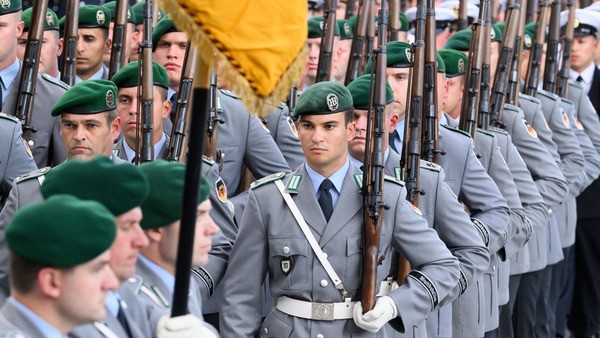Iran’s Plan to Strike Back Against the U.S.
Iran’s Military Preparations Following U.S. Attacks
Loading...

The recent increase in aggressive rhetoric may signify a pivotal moment in the nation's history, and unfortunately, not a favorable one.
Recent German history is punctuated by two significant dates—1918 and 1945—symbolizing extraordinary and catastrophic failures, among which militarism prominently figures.
While many countries maintain armed forces, militarism extends beyond mere military presence, encapsulating a broader syndrome encompassing politics, culture, and a zeitgeist that excessively glorifies a nation's military, elevating its public significance, social prestige, and political power.
Both pre-World War I and pre-World War II Germany exemplified this political pathology, facing dire consequences, including severe defeats in wars initiated with significant external influence and later independently. The repercussions of these defeats were profound: in 1918, leading to regime change, economic crisis, and enduring instability, and in 1945, culminating in national partition and enduring geopolitical decline. However, the reunification of the two Germanies in 1990 signaled an inevitable transformation. While constitutionally, the new Germany resembled an expanded version of the former West Germany, its broader cultural, geopolitical, and national identity were evolving.
In the aftermath of reunification, the emergence of post-unification Germany phase one was anticipated to be transitional, similar to the post-Soviet Russia phase of the 1990s. The nature of phase two remained speculative, with historical presumptions potentially challenged by unforeseen developments.
Fast forward to 2024, and over three decades have elapsed since German reunification, witnessing the departure of leaders like Gerhard Schroeder and Angela Merkel, emblematic of the initial phase. The new Germany is now taking shape, with unexpected nuances. Contrary to expectations of a dominant European powerhouse, Germany exhibits a concerning deference to American hegemony, even to the point of self-de-industrialization. Rather than a resurgence of traditional nationalism, a new form of national hubris is apparent, epitomized by figures like German Foreign Minister Annalena Baerbock. This "Green neo-Wilhelminism" combines a sense of moral superiority with an aggressive rejection of non-conforming sovereign states.
Moreover, the new Germany has not emerged as a disruptive force of innovation and industrial competitiveness, as observed after the 1871 unification. However, one aspect appears to align with expectations: militarism, albeit in new and puzzling forms.
Despite reservations about the term's applicability, recent developments suggest a growing inclination towards militarization. The German military, while smaller than its Cold War-era counterpart, enjoys strong public support, with surveys indicating widespread approval for increased military spending and even the reintroduction of compulsory military service.
However, the military's popularity isn't necessarily indicative of militarism, reflecting instead a desire for national security and conservative values. Yet, there's a concerted effort by German elites to shape public perception of the military, evident in media campaigns emphasizing fear and promoting military service as a tool of national unity.
While it may be premature to label this trend as outright militarism, there are discernible tremors indicating a potential shift in Germany's self-perception. The blurring lines between military and political spheres, unprecedented since reunification, suggest a significant transformation in the nation's identity and priorities.
Iran’s Military Preparations Following U.S. Attacks
Troops remain in five strategic locations, raising fears of renewed tensions and long-term occupation.
Opposition forces have taken control of the capital after a significant offensive. Here is how it unravelled.
